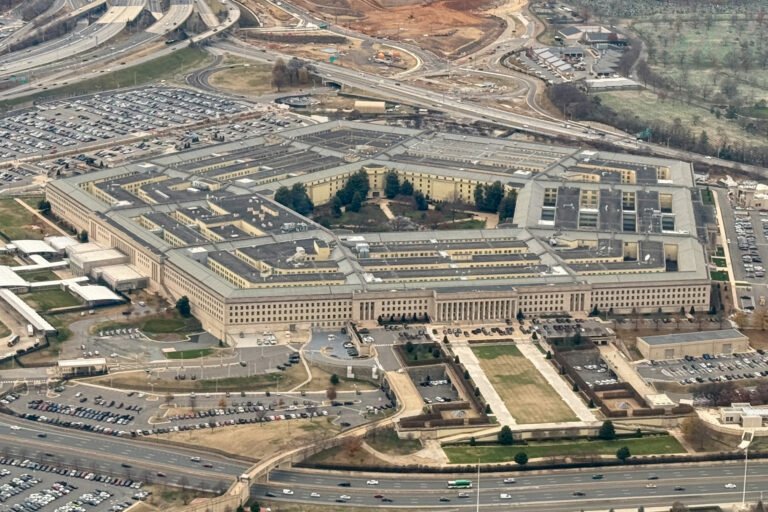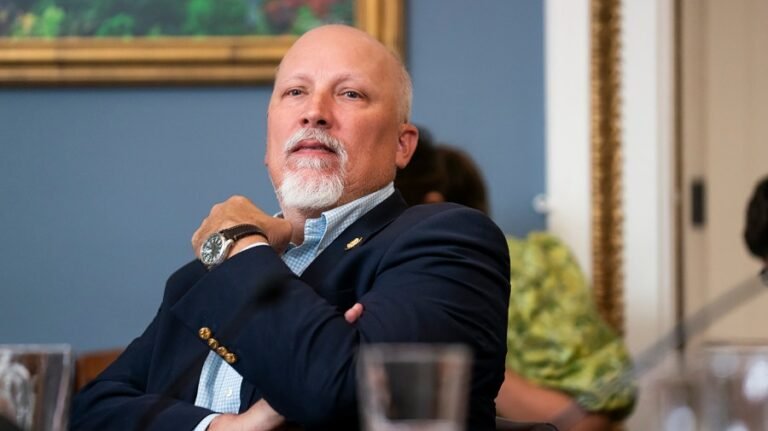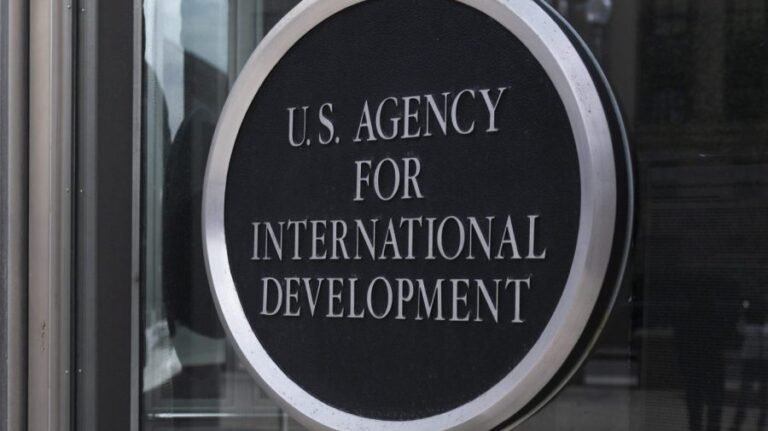
The Supreme Court’s ruling in a case on birthright citizenship gave an ominous warning to those challenging other Trump policies by curbing the use of nationwide injunctions that barred the order from being implemented all across the country.
But while Republicans rejoiced over the ruling, much of their celebration was focused on what the court signaled with its take on nationwide injunctions — a positive sign for the White House, as it has fumed over lower-court rulings that have blocked their policies.
The high court on Friday instructed lower courts to refashion their nationwide injunctions so they are not broader than necessary to provide complete relief to the 22 states and immigration groups suing. It potentially allows President Trump to begin barring birthright citizenship in the rest of the country for children born to parents who are not citizens themselves.
The ruling did not weigh the merits of Trump’s ban, and the issue is all but certain to return to the court.
The ruling’s significance wasn’t lost on Trump, who in a swiftly organized White House press conference rattled off a series of other policies he hoped would get the same treatment by the court.
“The decision signals the loss of one of the best tools lawyers have had in their arsenal for dealing with this administration’s constitutional excesses. It is not the only tool, but it was a significant one,” Joyce Vance, a law professor and former U.S. attorney appointed by former President Obama, wrote on her blog.
Republicans have railed against nationwide injunctions in recent months, furious to see district court judges block the implementation of policies they’ve determined are likely unlawful.
But Democrats say the uptick in nationwide injunctions is simply a reflection of the illegal nature of Trump’s policies, with many making sweeping changes through executive order.
The birthright citizenship case, however, has been the go-to example for Democrats and legal experts looking to show the importance of nationwide injunctions.
Infants, regardless of where they are born in the country, are entitled to citizenship as dictated by the Constitution, they argue. Blocking the order in only some places would leave a patchwork of legal hurdles across the country, creating scenarios in which some children could be left without citizenship while others may not have their U.S. citizenship recognized after traveling across state lines.
Beyond the birthright citizenship case, however, injunctions have been used in a number of other cases — litigation Trump cited as on his list for review.
“Thanks to this decision, we can now properly file to proceed with these numerous policies and those that have been wrongly enjoined on a nationwide basis, including birthright citizenship, ending sanctuary city funding, suspending refugee resettlement, freezing unnecessary funding, stopping federal taxpayers from paying for transgender surgeries and numerous other priorities of the American people,” Trump said Friday.
“We have so many of them. I have a whole list.”
The ruling doesn’t end nationwide injunctions entirely. Judges are instructed to only use them in cases where they are the only way to give plaintiffs “complete relief.”
But it does urge lower courts to shy away from the practice and is likely to push many litigants to pursue class-action lawsuits — a more time-consuming practice that comes with its own hurdles.
Attorneys leading the birthright citizenship case have already filed for class action consideration, and those on the front lines of challenging the Trump administration say they will not shy away from continuing with their legal suits.
“I’m not going to act like it wasn’t a little bit of a setback — and because of that, we just have to recalibrate,” said Tianna Mays, legal director at Democracy Defenders Action, which has numerous ongoing suits against the administration.
“A lot of these policies are very broad, and they affect everyone. So limiting the scope of a judge’s order to the people who either have the resources or who are part of a certain group to appear before them, that would seem insufficient in a lot of cases. It also would seem inefficient for judicial economy and judicial resources.”
But class-action suits have themselves been restrained in recent years.
“There are very rigorous requirements for class actions in this country, including commonality and all sorts of legal requirements that require lead plaintiffs to be representative of entire classes. And this is a situation where we could have people in multiple different sorts of situations that are impacted by this order,” Ankush Khardori, a former federal prosecutor and columnist for Politico, said in an appearance on MSNBC.
“And the Supreme Court, for years now, has been making it harder for people to bring class action. So I found it a little galling, quite honestly, for them to be acting like this is an adequate substitute, when everyone on that court knows that it’s become much harder to file class actions in recent years.”
Nationwide injunctions have been a target of the GOP for years, but those complaints have accelerated in the first months of the Trump administration.
While they’ve railed against the judiciary as being full of activist judges, jurists appointed by presidents of both parties — including by Trump himself — have ruled against the administration.
But in writing for the majority, Justice Amy Coney Barrett said that should not be seen as an invitation for the courts to extend their power.
“When a court concludes that the Executive Branch has acted unlawfully, the answer is not for the court to exceed its power, too,” she wrote.
A dissent written by Justice Sonia Sotomayor accused the majority of falling for the “gamesmanship” played by the Trump administration.
Every single judge who reviewed the citizenship order found it to run afoul of the Constitution, but the Trump administration brought a more narrow question before the court.
“The Government does not ask for complete stays of the injunctions, as it ordinarily does before this Court. Why? The answer is obvious: To get such relief, the Government would have to show that the Order is likely constitutional, an impossible task in light of the Constitution’s text, history, this Court’s precedents, federal law, and Executive Branch practice,” Sotomayor wrote.
“The gamesmanship in this request is apparent and the Government makes no attempt to hide it. Yet, shamefully, this Court plays along.”
The court barred implementation of Trump’s birthright citizenship order for another 30 days, but it’s not clear how it will be implemented.
“Every court that’s addressed this issue has concluded that it’s unconstitutional,” Khardori said, faulting the high court for “making no effort to consider the practical implications in this context.”
Mays said her organization still plans to ask for injunctions where appropriate but noted the new limitations will be a double-edged sword, noting that former President Biden had a number of his priorities blocked by nationwide injunctions.
“It cuts both ways. Right now, folks are jumping up and down on one side saying, ‘Oh, this is great. It’s going to stop all these things,’” she said.
“Well, when there’s some things that they don’t like going on, it’s also going to slow up their ability to get a bunch of things halted.”
Zach Schonfeld contributed.


